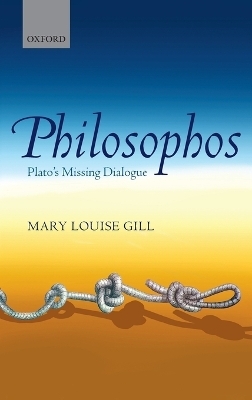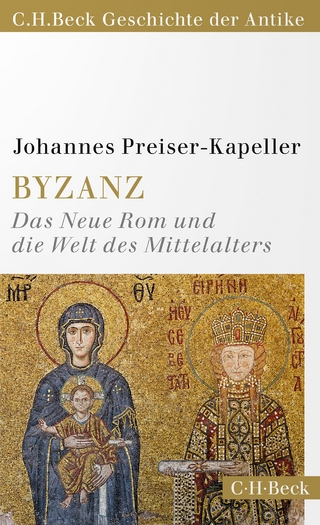
Philosophos
Plato's Missing Dialogue
Seiten
2012
Oxford University Press (Verlag)
978-0-19-960618-4 (ISBN)
Oxford University Press (Verlag)
978-0-19-960618-4 (ISBN)
Mary Louise Gill presents a bold new explanation of the fact that the dialogue which Plato promised to write on the Philosopher, complementing the Sophist and the Statesman, is missing. Gill argues that he left it unwritten in order to stimulate his readers and encourage them to work out, for themselves, the portrait it would have contained.
Plato famously promised to complement the Sophist and the Statesman with another work on a third sort of expert, the philosopher--but we do not have this final dialogue. Mary Louise Gill argues that Plato promised the Philosopher, but did not write it, in order to stimulate his audience and encourage his readers to work out, for themselves, the portrait it would have contained. The Sophist and Statesman are themselves members of a larger series starting with the Theaetetus, Plato's investigation of knowledge, and the whole series relies on the Parmenides, the second part of which presents a philosophical exercise, introduced as the first step in a larger philosophical program. Gill contends that the dialogues leading up to the missing Philosopher, though they reach some substantive conclusions, are philosophical exercises of various sorts designed to train students in dialectic, the philosopher's method; and that a second version of the Parmenides exercise, closely patterned on it, spans parts of the Theaetetus and Sophist and brings the philosopher into view. This is the exercise about being, the subject-matter studied by Plato's philosopher. Plato hides the pieces of the puzzle and its solution in plain sight, forcing his students (and modern readers) to dig out the pieces and reconstruct the project. Gill reveals how, in finding the philosopher through the exercise, the student becomes a philosopher by mastering his methods. She shows that the target of Plato's exercise is internally related to its pedagogical purpose.
Plato famously promised to complement the Sophist and the Statesman with another work on a third sort of expert, the philosopher--but we do not have this final dialogue. Mary Louise Gill argues that Plato promised the Philosopher, but did not write it, in order to stimulate his audience and encourage his readers to work out, for themselves, the portrait it would have contained. The Sophist and Statesman are themselves members of a larger series starting with the Theaetetus, Plato's investigation of knowledge, and the whole series relies on the Parmenides, the second part of which presents a philosophical exercise, introduced as the first step in a larger philosophical program. Gill contends that the dialogues leading up to the missing Philosopher, though they reach some substantive conclusions, are philosophical exercises of various sorts designed to train students in dialectic, the philosopher's method; and that a second version of the Parmenides exercise, closely patterned on it, spans parts of the Theaetetus and Sophist and brings the philosopher into view. This is the exercise about being, the subject-matter studied by Plato's philosopher. Plato hides the pieces of the puzzle and its solution in plain sight, forcing his students (and modern readers) to dig out the pieces and reconstruct the project. Gill reveals how, in finding the philosopher through the exercise, the student becomes a philosopher by mastering his methods. She shows that the target of Plato's exercise is internally related to its pedagogical purpose.
Mary Louise Gill is Professor of Philosophy and Classics at Brown University. She is the author of Aristotle on Substance: The Paradox of Unity (Princeton, 1989) and of many articles and several co-edited books on Plato and Aristotle.
Acknowledgements ; Introduction ; 1. Forms in Question ; 2. A Philosophical Exercise ; 3. The Contest between Heraclitus and Parmenides ; 4. Knowledge as Expertise ; 5. Appearances of the Sophist ; 6. Refining the Statesman ; 7. The Philosopher's Object ; Works Cited ; Index Locorum ; Index of Names ; General Index
| Erscheint lt. Verlag | 20.9.2012 |
|---|---|
| Verlagsort | Oxford |
| Sprache | englisch |
| Maße | 171 x 240 mm |
| Gewicht | 604 g |
| Themenwelt | Geschichte ► Allgemeine Geschichte ► Altertum / Antike |
| Geisteswissenschaften ► Philosophie ► Philosophie Altertum / Antike | |
| ISBN-10 | 0-19-960618-8 / 0199606188 |
| ISBN-13 | 978-0-19-960618-4 / 9780199606184 |
| Zustand | Neuware |
| Haben Sie eine Frage zum Produkt? |
Mehr entdecken
aus dem Bereich
aus dem Bereich
die Inszenierung der Politik in der römischen Republik
Buch | Hardcover (2023)
C.H.Beck (Verlag)
48,00 €


